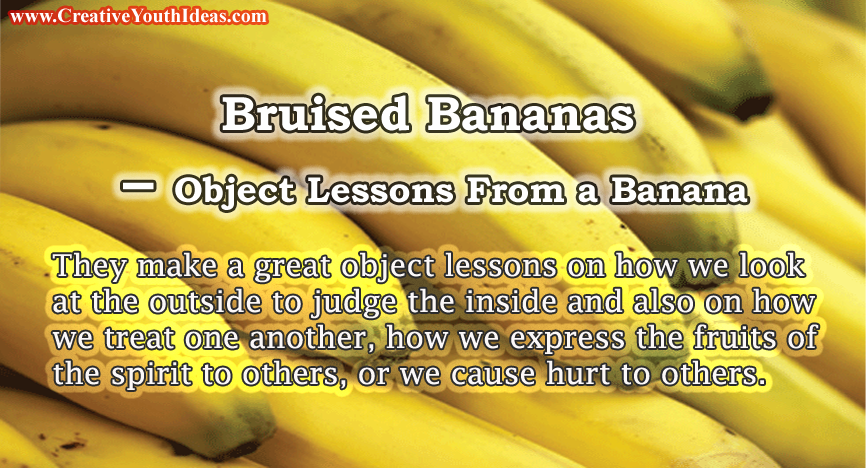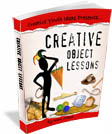It is said a person has three names: the one given at birth, the one other people give, and the one (s)he gives him/herself. Names have meaning. Sometimes names are changed to reflect a new direction in a person’s life. In his icebreaker game, youth not only learn each other’s names, but they also explore what it means to be called a Christian, a disciple, a saint, a believer.
What you need
No resources are needed for this icebreaker
What to do
Round ONE
- Form the youth into several circles, with everyone faced toward the center of the circle with their arms to their side.
- Choose someone to start”Everyone put your right hand in the air. Hand in the air!””On the count of three, everyone point to the happiest person in the circle.”
The person that the most people are pointing to will go first in this game.
- He or she must choose someone in the group and use his entire arm to point at them and while pointing to this person call out his or her OWN name. They do not call out the name of the person they are pointing to, but call out their own name. He or she than crosses his or her arms.
- The person who was just pointed to, repeats the action, pointing to someone in the circle whose arms are not crossed and calling out his or her own name.
- Continue until everyone has been pointed to in the circle. It’s not as easy as it seems.
Round TWO
- Repeat the activity, but this round, time make it a competition between groups to see which circle will complete the activity in the quickest time.
TAKE IT TO THE NEXT LEVEL
Debrief
- When you played this activity, what happened?
- Why was this game difficult?
- Is a person’s name significant?
- It is said a person has three names: the one (s)he is given at birth, the one other people give him/her, and the one (s)he gives him/herself. What does this mean?
- What does your name say about you?
- Do you feel that your birth name adequately expresses who you are? Why or why not?
Teaching Point: Names are often given in reference to: aspects of a person’s birth, hopes the parent has for his or her child, something a parent likes, a connection the parent wants to draw attention to, family ties
- What name would your mentor or the person you most look up to in life give to you?
- If you had to choose a name to express your essence, what would it be?
- If you were to choose a new name for yourself today, what would you choose and why?
MAKE IT SPIRITUAL
- What significance do people’s names in the Bible have?
Share a few of the familiar ones if not mentioned by the youth.
– Abram -> Abraham “Father of a multitude”
– Simon -> Peter “Peter” or “Rock”
– Saul -> Paul
– Jacob “supplanter” -> Israel “Prince of God” “He who struggles with God”
– Sarai -> Sarah “Princess” “mother of nations”
In the Bible’s most famous name change situations, God is making a statement about the person.
– spiritual accomplishments
– spiritual potential
– a promise or blessing
– change or new direction in life
– new identity
– Indication of God’s plan for them
The name “Christians was first used at Antioch (Acts 11:19-26)
As Christians
– We are called Christians – new identity / nature
– We are given a new name (Revelation 2:17, 21:12, 21:7; Philippians 4:4)
– Our life takes a change of direction
– The disciples called each other, “brethren”, “disciples”, “apostles”, “servants”, “believers”, “followers”, “the faithful”, “the elect”, “the called”, and “saints.” We can also identify ourselves as “bondservants” of Christ.
MAKE IT PERSONAL
- What name do you think God would give to you? Why
- How can you live according to the name “Christian” “Disciple” “servant” “Believer” or “Saint” this week?
Additional Scriptures
Here are some interesting scriptures related to becoming “Christ”-like
1 Corinthians 1:3-15 – “Grace to you and peace from God our Father and the Lord Jesus Christ. I give thanks to my God always for you because of the grace of God that was given you in Christ Jesus, that in every way you were enriched in him in all speech and all knowledge, even as the testimony about Christ was confirmed among you, so that you are not lacking in any spiritual gift, as you wait for the revealing of our Lord Jesus Christ, …”
1 Corinthians 11:1 – “Be imitators of me, just as I also am of Christ.”
1 John 2:29 – “If you know that he is righteous, you may be sure that everyone who practices righteousness has been born of him.”
1 John 2:6 – “Whoever says he abides in him ought to walk in the same way in which he walked.”
1 John 3:2-3 – “Beloved, now we are children of God, and it has not appeared as yet what we will be. We know that when He appears, we will be like Him, because we will see Him just as He is. And everyone who has this hope fixed on Him purifies himself, just as He is pure.”
1 John 4:17 – “By this is love perfected with us, so that we may have confidence for the day of judgment, because as he is so also are we in this world.”
1 Peter 2:21 – “For to this you have been called, because Christ also suffered for you, leaving you an example, so that you might follow in his steps.”
1 Thessalonians 1:6 – “You also became imitators of us and of the Lord, having received the word in much tribulation with the joy of the Holy Spirit,”
2 Corinthians 2:14 – “But thanks be to God, who in Christ always leads us in triumphal procession, and through us spreads the fragrance of the knowledge of him everywhere.”
2 Corinthians 3:18 – “But we all, with unveiled face, beholding as in a mirror the glory of the Lord, are being transformed into the same image from glory to glory, just as from the Lord, the Spirit.”
2 Corinthians 5:17 – “Therefore if anyone is in Christ, he is a new creature; the old things passed away; behold, new things have come.”
Ephesians 4:11-13 – “And He gave some as apostles, and some as prophets, and some as evangelists, and some as pastors and teachers, for the equipping of the saints for the work of service, to the building up of the body of Christ; until we all attain to the unity of the faith, and of the knowledge of the Son of God, to a mature man, to the measure of the stature which belongs to the fullness of Christ.”
Ephesians 4:22-24 – “To put off your old self, which belongs to your former manner of life and is corrupt through deceitful desires, and to be renewed in the spirit of your minds, and to put on the new self, created after the likeness of God in true righteousness and holiness.”
Ephesians 5:1-2 – “Therefore be imitators of God, as beloved children; and walk in love, just as Christ also loved you and gave Himself up for us, an offering and a sacrifice to God as a fragrant aroma.”
Galatians 3:27 – “For as many of you as were baptized into Christ have put on Christ.”
Galatians 4:19 – “My little children, for whom I am again in the anguish of childbirth until Christ is formed in you!”
John 13:14-15 – “If I then, the Lord and the Teacher, washed your feet, you also ought to wash one another’s feet. “For I gave you an example that you also should do as I did to you.”
John 13:34 – “A new commandment I give to you, that you love one another, even as I have loved you, that you also love one another.
John 15:10 – “If you keep My commandments, you will abide in My love; just as I have kept My Father’s commandments and abide in His love.
John 15:12 – “This is My commandment, that you love one another, just as I have loved you.
Luke 6:40 – “A pupil is not above his teacher; but everyone, after he has been fully trained, will be like his teacher.”
Luke 6:46 – “Why do you call me ‘Lord, Lord,’ and not do what I tell you?”
Matthew 10:25 – “It is enough for the disciple that he become like his teacher, and the slave like his master. If they have called the head of the house Beelzebub, how much more will they malign the members of his household!”
Matthew 5:48 – “You therefore must be perfect, as your heavenly Father is perfect.”
Philippians 2:4-5 – “do not merely look out for your own personal interests, but also for the interests of others. Have this attitude in yourselves which was also in Christ Jesus,”
Romans 12:2 – “And do not be conformed to this world, but be transformed by the renewing of your mind, so that you may prove what the will of God is, that which is good and acceptable and perfect.”
Romans 6:11 – “Even so consider yourselves to be dead to sin, but alive to God in Christ Jesus.”
Romans 6:4 – “We were buried therefore with him by baptism into death, in order that, just as Christ was raised from the dead by the glory of the Father, we too might walk in newness of life.”
Romans 8:2-8 – “For the law of the Spirit of life has set you free in Christ Jesus from the law of sin and death. For God has done what the law, weakened by the flesh, could not do. By sending his own Son in the likeness of sinful flesh and for sin, he condemned sin in the flesh, in order that the righteous requirement of the law might be fulfilled in us, who walk not according to the flesh but according to the Spirit. For those who live according to the flesh set their minds on the things of the flesh, but those who live according to the Spirit set their minds on the things of the Spirit. For to set the mind on the flesh is death, but to set the mind on the Spirit is life and peace. …”
Romans 8:28-29 – “And we know that for those who love God all things work together for good, for those who are called according to his purpose. For those whom he foreknew he also predestined to be conformed to the image of his Son, in order that he might be the firstborn among many brothers.”
Titus 3:1-8 – “Remind them to be submissive to rulers and authorities, to be obedient, to be ready for every good work, to speak evil of no one, to avoid quarreling, to be gentle, and to show perfect courtesy toward all people. For we ourselves were once foolish, disobedient, led astray, slaves to various passions and pleasures, passing our days in malice and envy, hated by others and hating one another. But when the goodness and loving kindness of God our Savior appeared, he saved us, not because of works done by us in righteousness, but according to his own mercy, by the washing of regeneration and renewal of the Holy Spirit, …
PLEASE SHARE THIS IDEA ON FACEBOOK

This 170 page resource not only provides 52 of the world’s most popular group icebreaker activities and games, but also includes lesson ideas and discussion questions to smoothly transition into conversations about the issues common to most groups.
Click here to find out how to get your hands on this incredible resource!








 Finding one’s identity, purpose, and meaning in life are common struggles that every youth faces. They are seeking an answer to the question, “Why am I here?” In their search for purpose, they may try to find fulfillment in a variety of things, some good, some bad. But our purpose cannot be found in things. Our identity is found by filling the emptiness in our lives with Christ. When God’s Hand is at work in our lives, only then will we find true meaning and purpose. Gloves are a great object lesson to remind youth of this spiritual truth and a simplified version of this lesson makes a great Children’s Sermon.
Finding one’s identity, purpose, and meaning in life are common struggles that every youth faces. They are seeking an answer to the question, “Why am I here?” In their search for purpose, they may try to find fulfillment in a variety of things, some good, some bad. But our purpose cannot be found in things. Our identity is found by filling the emptiness in our lives with Christ. When God’s Hand is at work in our lives, only then will we find true meaning and purpose. Gloves are a great object lesson to remind youth of this spiritual truth and a simplified version of this lesson makes a great Children’s Sermon.